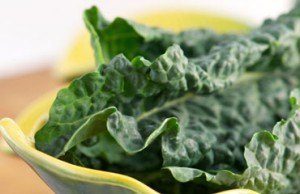Terms of UseThe contents of this website are for educational purposes and are not intended to offer personal medical advice. You should seek the advice of your physician or other qualified health provider with any questions you may have regarding a medical condition. Never disregard professional medical advice or delay in seeking it because of … Continue reading “Low Vitamin D: What Increases The Risk?”
Folate is the natural form of vitamin B9, water-soluble and naturally found in many foods. It is also added to foods and sold as a supplement in the form of folic acid; this form is actually better absorbed than that from food sources—85% vs. 50%, respectively. Folate helps to form DNA and RNA and is … Continue reading “Folate (Folic Acid) – Vitamin B9”
Vitamin E is a fat-soluble vitamin with several forms, but alpha-tocopherol is the only one used by the human body. Its main role is to act as an antioxidant, scavenging loose electrons—so-called “free radicals”—that can damage cells. [1] It also enhances immune function and prevents clots from forming in heart arteries. Antioxidant vitamins, including vitamin … Continue reading “Vitamin E”
Vitamin D is both a nutrient we eat and a hormone our bodies make. It is a fat-soluble vitamin that has long been known to help the body absorb and retain calcium and phosphorus; both are critical for building bone. Also, laboratory studies show that vitamin D can reduce cancer cell growth, help control infections … Continue reading “Vitamin D”
Vitamin K is a fat-soluble vitamin that comes in two forms. The main type is called phylloquinone, found in green leafy vegetables like collard greens, kale, and spinach. The other type, menaquinones, are found in some animal foods and fermented foods. Menaquinones can also be produced by bacteria in the human body. [1] Vitamin K … Continue reading “Vitamin K”
Vitamins and minerals are micronutrients required by the body to carry out a range of normal functions. However, these micronutrients are not produced in our bodies and must be derived from the food we eat. Vitamins are organic substances that are generally classified as either fat soluble or water soluble. Fat-soluble vitamins (vitamin A, vitamin … Continue reading “Vitamins and Minerals”
It’s only a semi-myth that eating carrots will help you see in the dark. A carrot’s main nutrient, beta-carotene (responsible for this root vegetable’s characteristic orange color), is a precursor to vitamin A and helps your eyes to adjust in dim conditions. Vitamin A can’t give you superpowers of night vision or cure your dependence … Continue reading “Vitamin A”
You’re probably familiar with Vitamin B6 and B12, but did you know there are actually eight B vitamins? B1 (thiamin) B2 (riboflavin) B3 (niacin) B5 (pantothenic acid) B6 (pyridoxine) B7 (biotin) B9 (folate [folic acid]) B12 (cobalamin) These vitamins help a variety of enzymes do their jobs, ranging from releasing energy from carbohydrates and fat … Continue reading “B Vitamins”
Coverage from AARP, featuring Meir Stampfer
Coverage from UPI.com, featuring Meir Stampfer





